Innovation, collaboration, and… patience! The international conference “Leading the Transition to a Circular Textile & Fashion Industry” set the agenda for the continued journey towards a circular textile industry.
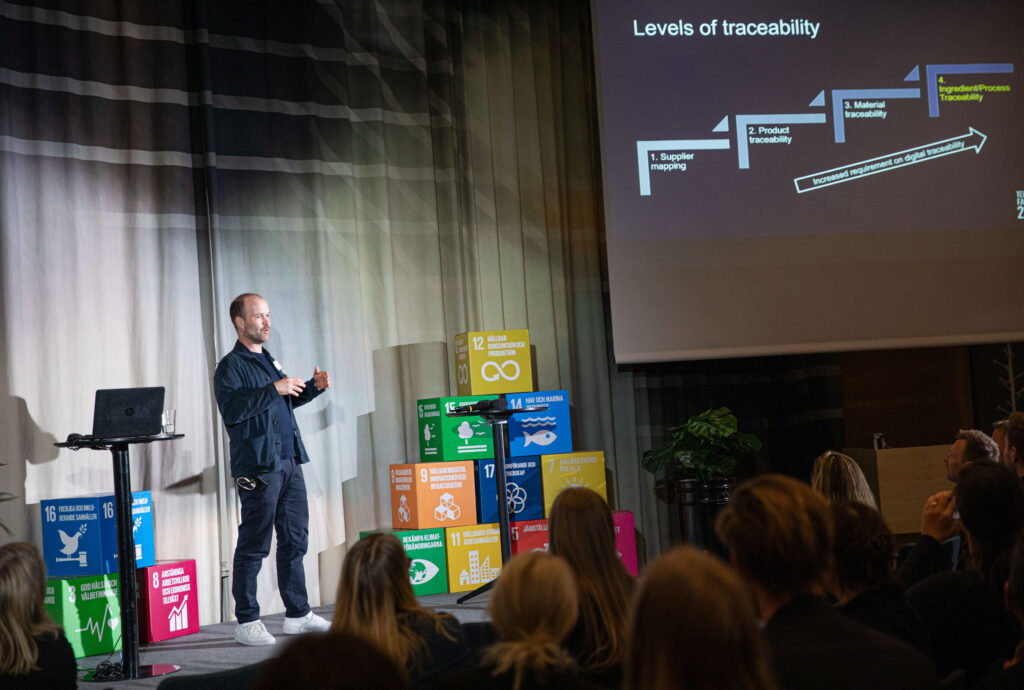
On 26 April, more than 160 participants gathered at the Textile Fashion Center to discuss the most pressing issue in the textile and fashion industry: the transition to a more sustainable and circular future. The conference was organized by Textile & Fashion 2030 together with BioInnovation’s research program Circular Textile Innovations (CITEX) and the Nordic Blockchain Alliance. It attracted guests from all over Europe, as well as some 50 digital participants.
Lutz Walter, Secretary General of the European Textile Technology Platform (ETP), opened the day with a keynote lecture on why the textile industry needs to become more circular. He then highlighted the importance of textile meeting places and clusters such as the one in Borås.
“We need to create opportunities for people in the industry to meet physically”, he said. “This is why we have these conferences – the presentations during the day provide knowledge, but it is the spontaneous meetings in the corridor outside that are the most important. And to meet in an such inspirational environment as Textile Fashion Center – it impacts a lot more than you think.”
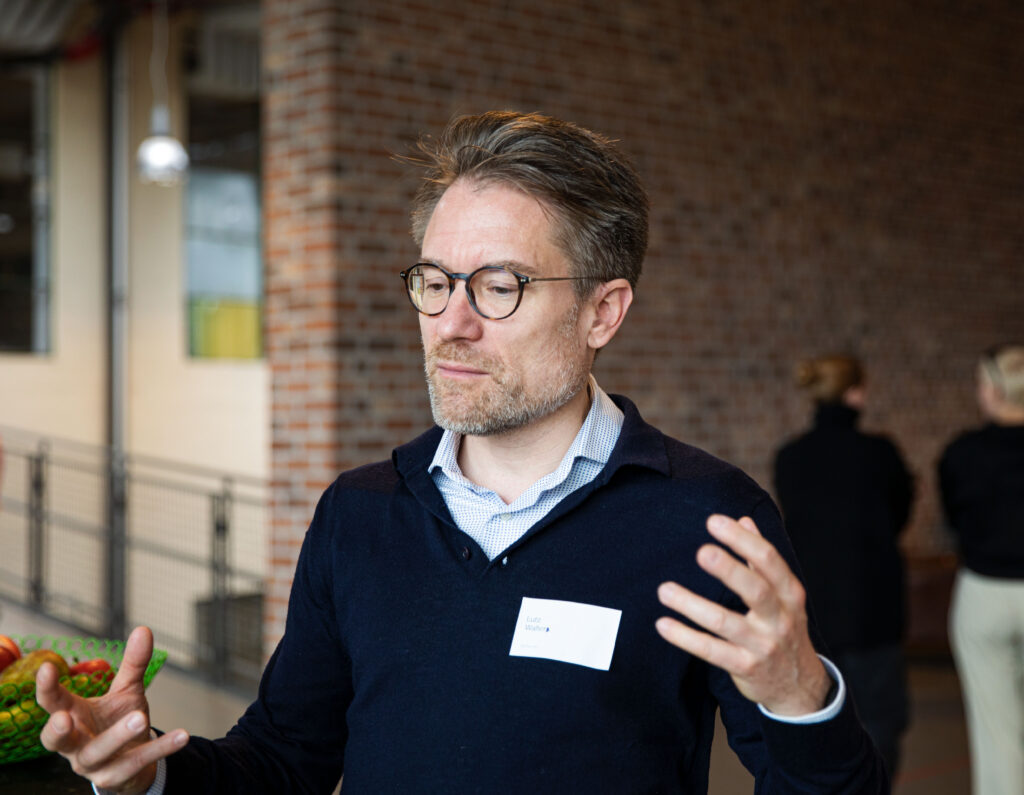
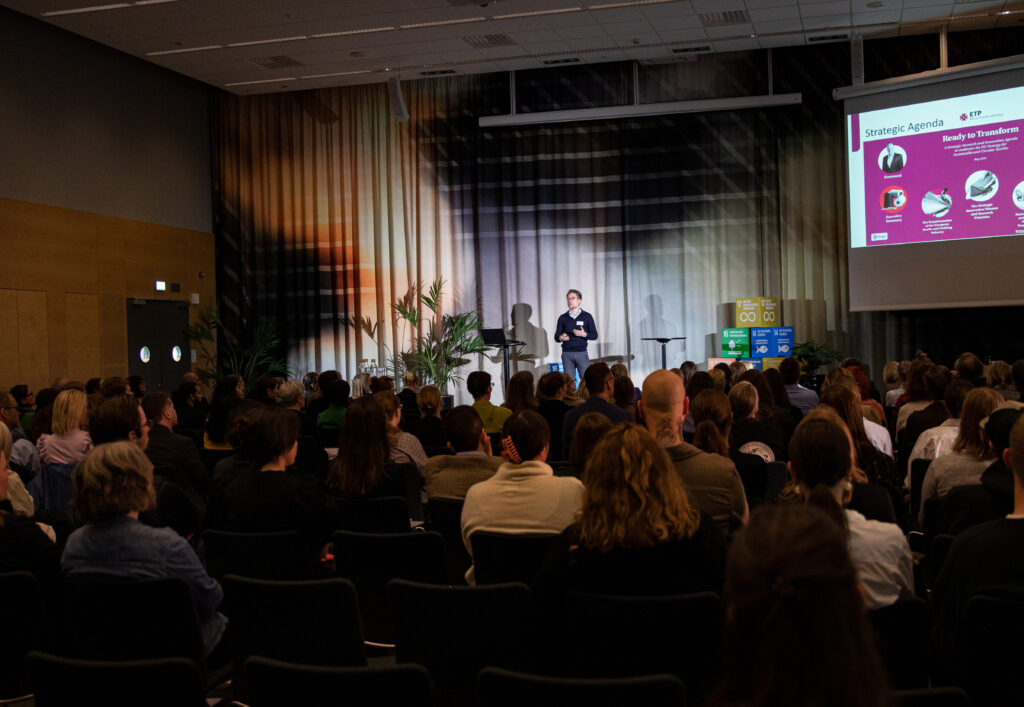
In his presentation, he also pointed out that the time frame for the circular transition must be extended; nothing will be ready by 2030, it is rather by 2050 that we can hope for real change.
“It is a long journey and it will not be straightforward. I think everyone understands that we are facing a dramatic change in the way we produce and consume textiles and that it will take patience to see the impact of the actions we decide on today.”
“We want to inspire and give hope”
The second keynote lecture was held by Jenny Frick from Impact House Halland, who presented the concept of Inner Development Goals (IDG) – inner transformation capabilities linked to the UN’s global goals within Agenda 2030. The morning was then filled with presentations from several companies working on circular strategies and technologies. For example, Anna Palme from Södra Skogsägarna spoke about the company’s work with the wood-based textile material OnceMore, which is already in commercial production at the clothing chain Lindex.
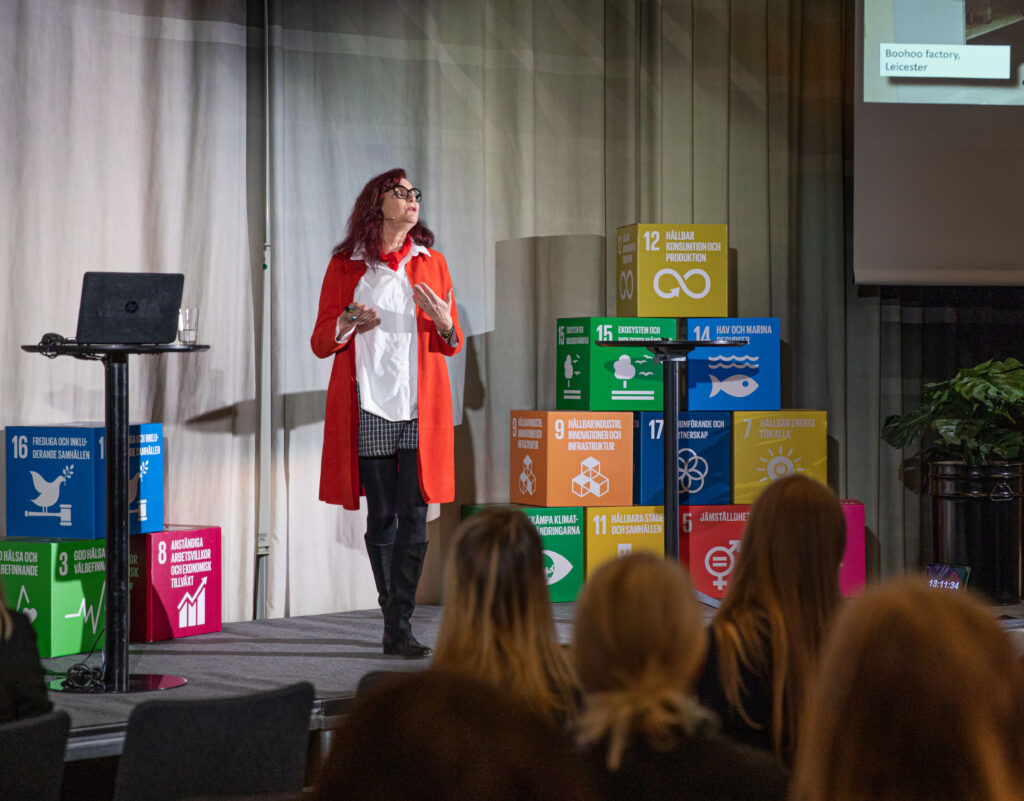
After lunch, the program was curated by the Nordic Blockchain Alliance, focusing on different technologies for traceability and transparency in the textile production chain. Participants were then invited to choose a workshop on the theme that interested them the most. The day ended with a joint mingle.
Lena-Marie Jensen, project manager for the conference at Textile & Fashion 2030, was satisfied.
“It was a very fun and exciting conference, with many knowledgeable and inspiring speakers and good examples that showed that together we are driving the work towards the SDGs,” she said.
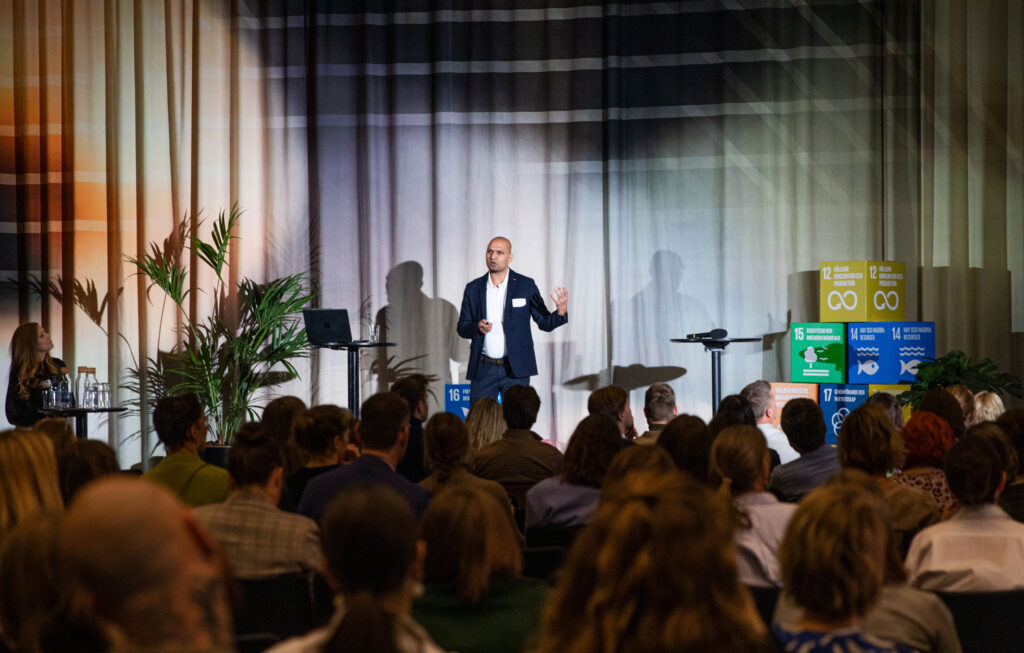
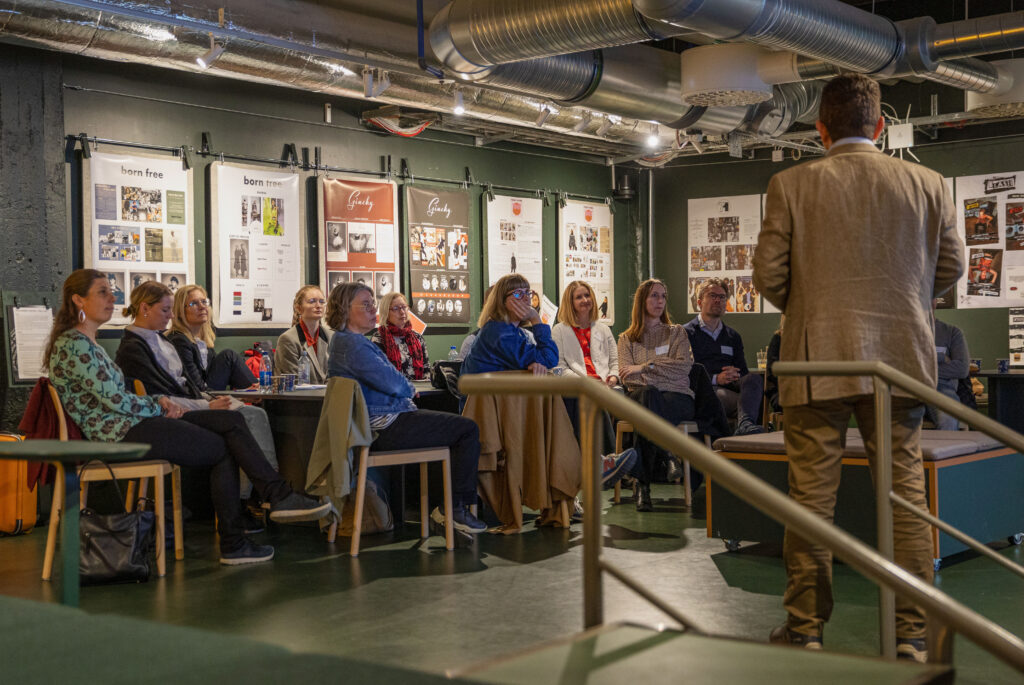
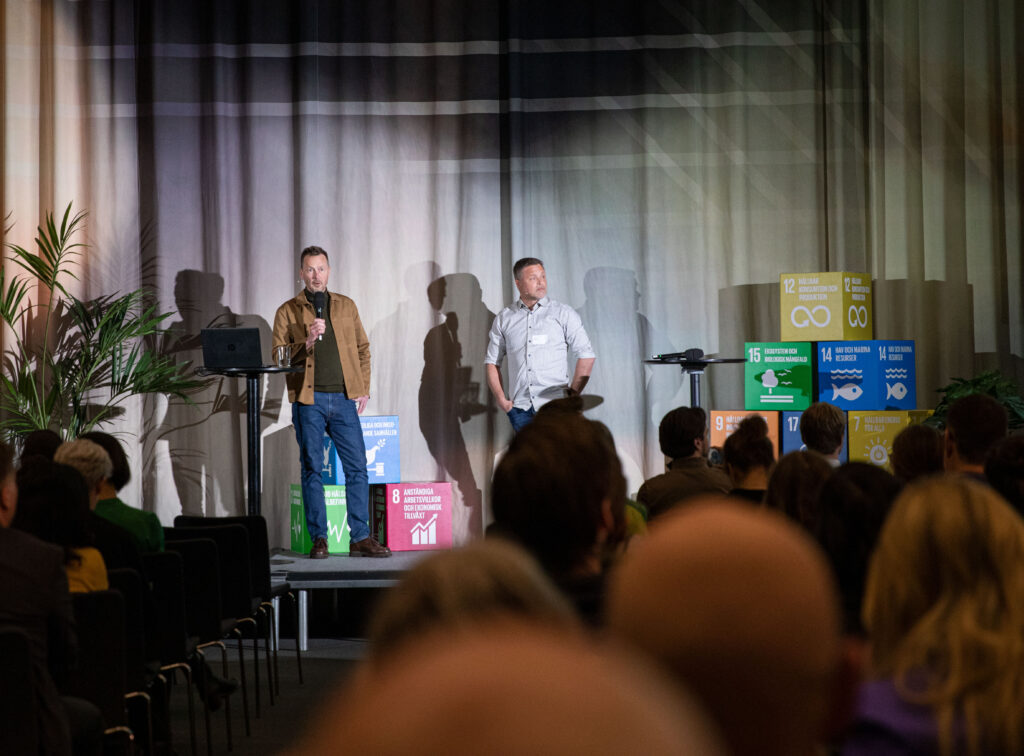
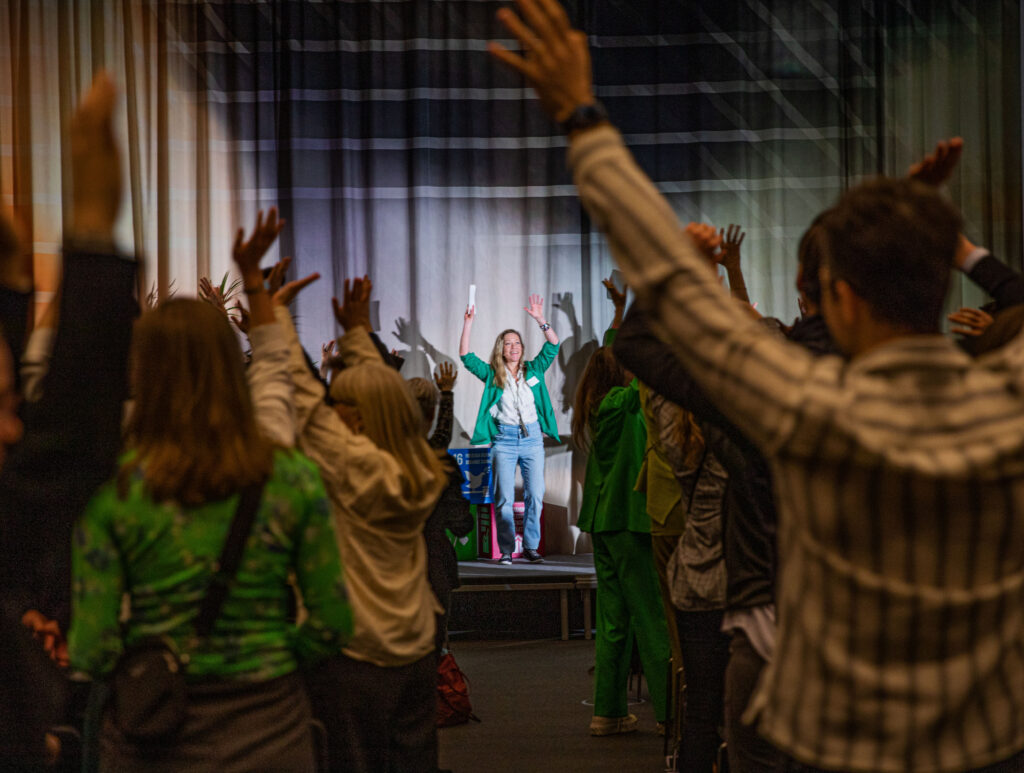
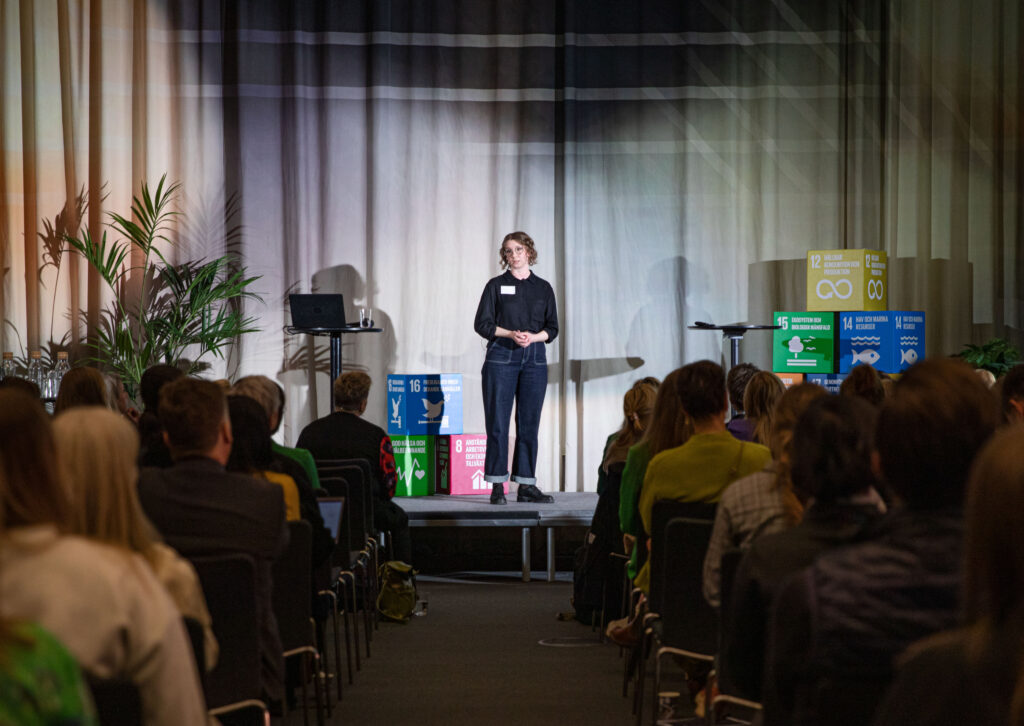
“We in the organizing team wanted to inspire and instill hope that things are happening, to show that the Swedish textile and fashion industry is at the forefront of the transformation to a circular, bio-based society. I think we succeeded very well in that intention.”
Speaker presentations:
Lutz Walter, Textile ETP
Jenny Frick, Impact House Halland
Eliina Brinkberg, Nudie Jeans
Helena Tuvendal, Artex
Åsa Östlund, TreeToTextile
Anna Palme, Once More
Erik Lundh & Niklas Malmros, Interior Cluster Sweden & Sigma Technology
Yvonne Augustsson, Naturvårdsverket
Jonas Larsson, Science Park Borås
Text: Christian Naumanen
Translation: Eva Medin
Photos: Vasilios Bartziokas





